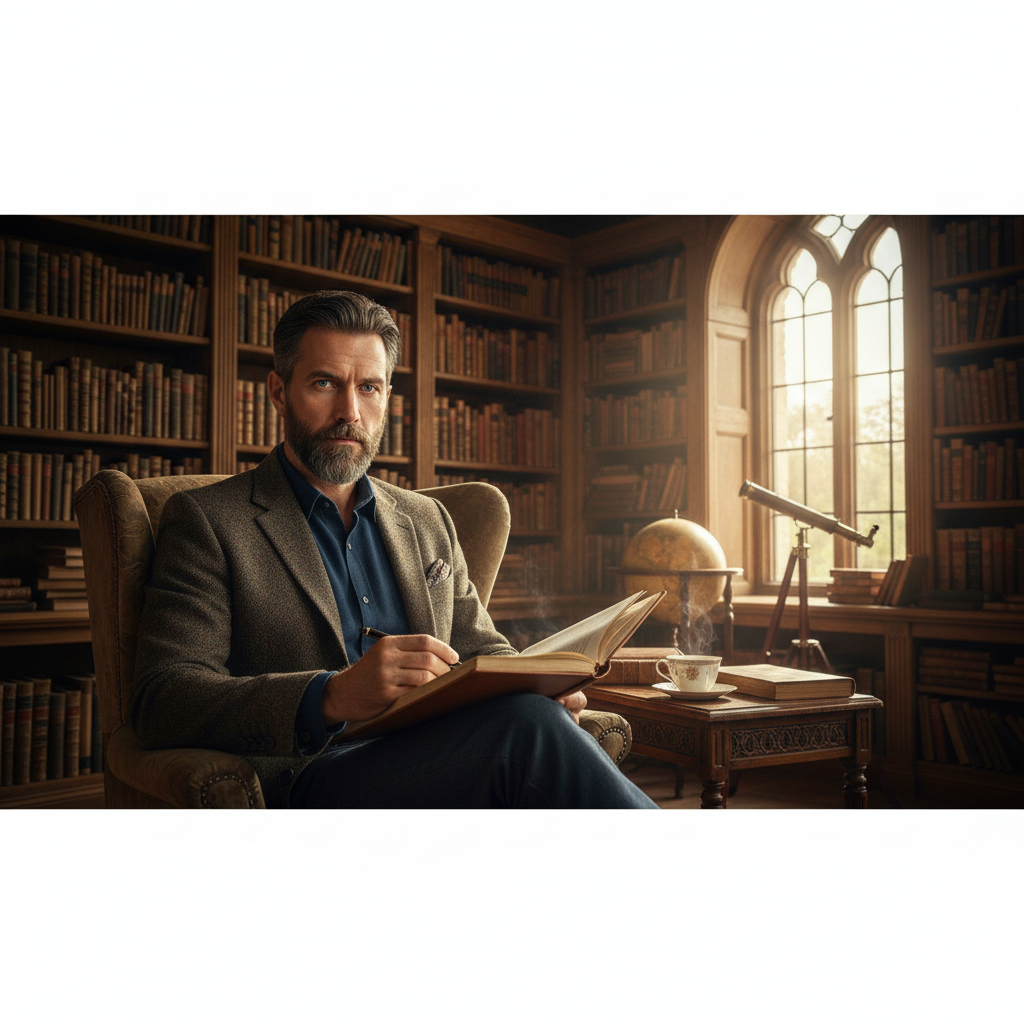Theron Roth is a name that resonates in philosophical circles, sparking intrigue and discussion. His ideas challenge conventional thinking and invite us to reconsider our beliefs about existence, morality, and the human experience. But who exactly is Theron Roth? What shaped his thoughts into the influential philosophy we know today? As we delve into his life journey, we’ll uncover the layers of his beliefs and how they continue to impact us. Join me as we explore the mind of this compelling thinker whose philosophies encourage us to question everything around us.
Early Life and Influences
Theron Roth was born into a modest family, where curiosity thrived. His parents encouraged exploration and critical thinking from an early age. Books lined the shelves of their home, each one a doorway to new ideas.
AD
As a child, he spent countless hours lost in philosophy texts and scientific discoveries. Figures like Socrates and Einstein sparked his imagination. Their radical thoughts shaped his worldview.
Growing up in a small town also provided unique challenges. The community’s traditional values often clashed with Theron’s progressive ideas. This tension fueled his desire to question established norms.
Nature played its part too; long walks along serene trails inspired deep reflection. These experiences planted the seeds for what would become his distinctive philosophical approach—fostering inquiry while embracing complexity in everyday life.
The Evolution of Theron Roth’s Philosophy
Theron Roth’s philosophy has undergone a remarkable transformation over the years. Initially rooted in traditional existentialism, he sought to understand human existence through the lens of freedom and choice.
As his thoughts matured, he began to incorporate elements from Eastern philosophies. Concepts like mindfulness and interconnectedness shaped his understanding of reality. This blending expanded his philosophical framework into a more holistic approach.
Roth’s later work emphasized the importance of community and collective responsibility. He argued that individual actions carry weight beyond personal consequences.
This shift sparked dialogues around ethical living in modern society. His ideas resonated with those seeking deeper meaning amidst chaos.
Through various writings, lectures, and debates, Theron Roth challenged conventional wisdom while inviting others to explore their own paths toward enlightenment. Each phase reflects not just growth but an unwavering quest for truth amid life’s complexities.
Key Concepts in Theron Roth’s Philosophy
Theron Roth’s philosophy centers around the idea of interconnectedness. He emphasizes that all beings are linked, creating a web of relationships that influence our actions and thoughts.
Another pivotal concept is the balance between individualism and collectivism. Roth argues for personal freedom while recognizing communal responsibilities. This duality encourages harmony within society.
Roth also explores the notion of purpose. He believes every action should align with one’s core values, fostering authenticity in daily life.
Additionally, his ideas on mindfulness highlight being present and aware. This practice cultivates deeper connections with oneself and others.
Roth advocates for continuous growth through learning and self-reflection. Embracing change leads to greater understanding and compassion in interactions with the world around us.
Application of Theron Roth’s Philosophy in Daily Life
Theron Roth’s philosophy offers practical insights that can enhance everyday living. By embracing his ideas, individuals can cultivate a more mindful approach to their experiences.
One key aspect is the emphasis on self-awareness. Practicing mindfulness allows people to connect deeply with their thoughts and emotions. This leads to better decision-making in both personal and professional realms.
Another important principle is the value of community engagement. Roth advocates for building strong relationships and fostering collaboration among peers. Participating in communal activities not only enriches one’s life but also strengthens societal bonds.
Moreover, applying Roth’s teachings encourages resilience during challenges. His perspective helps individuals reframe obstacles as opportunities for growth rather than setbacks.
Incorporating these concepts into daily routines can transform mundane tasks into meaningful actions, creating a fulfilling lifestyle rooted in purpose and connection.
Criticisms and Controversies Surrounding Theron Roth
Theron Roth’s philosophy has not been without its critics. Some scholars argue that his ideas lack empirical support, claiming they often drift into abstraction. This skepticism raises questions about the practical applicability of his concepts.
Additionally, certain factions within philosophical circles challenge his ethical viewpoints. They see them as overly idealistic and disconnected from societal realities. Critics contend that such perspectives can lead to impractical solutions for pressing issues.
Controversies also arise from Roth’s interpretations of historical philosophies. His unique takes sometimes clash with established thought leaders, igniting debates among enthusiasts and academics alike.
Furthermore, followers of Theron Roth often find themselves defensive against accusations of elitism in their understanding of complex topics. Such tensions create a dynamic landscape around his work, stirring ongoing discussions on relevance and impact in modern society.
Legacy and Impact of Theron Roth’s Philosophy
Theron Roth’s philosophy leaves a distinctive mark on contemporary thought. His ideas challenge traditional perspectives, urging individuals to question societal norms and embrace personal truths.
Many scholars regard his work as a catalyst for modern philosophical discourse. Students and thinkers alike draw inspiration from his emphasis on authenticity and self-awareness.
Roth’s influence extends beyond academia into the realms of psychology and self-help. His principles encourage people to cultivate resilience in their daily lives, promoting mental well-being.
The ripple effect of his teachings fosters communities that prioritize open dialogue about personal growth. As new generations explore his concepts, they adapt them to address current issues like identity politics and environmental ethics.
In essence, Theron Roth’s legacy is alive in ongoing debates around individualism, responsibility, and social change. His contributions resonate with those seeking deeper understanding in an increasingly complex world.
Conclusion
Theron Roth’s philosophy offers a unique lens through which to view life and existence. His early influences shaped his thoughts, leading him on a journey of intellectual exploration that resonates with many today. The evolution of his ideas reflects both personal growth and broader societal shifts.
Key concepts within Roth’s framework encourage individuals to think critically about their beliefs, values, and actions. They provide practical tools for navigating the complexities of daily life while fostering deeper connections with others.
Despite facing criticisms and controversies, Theron Roth’s impact cannot be overlooked. He challenges us to question norms and engage in meaningful dialogue about our world. As we continue to explore his work, it becomes clear that his insights are as relevant now as ever.
The legacy left by Theron Roth invites ongoing discussion and reflection. It encourages each person to incorporate parts of his philosophy into their own lives, ultimately enriching the human experience through thoughtful engagement with ourselves and those around us.









